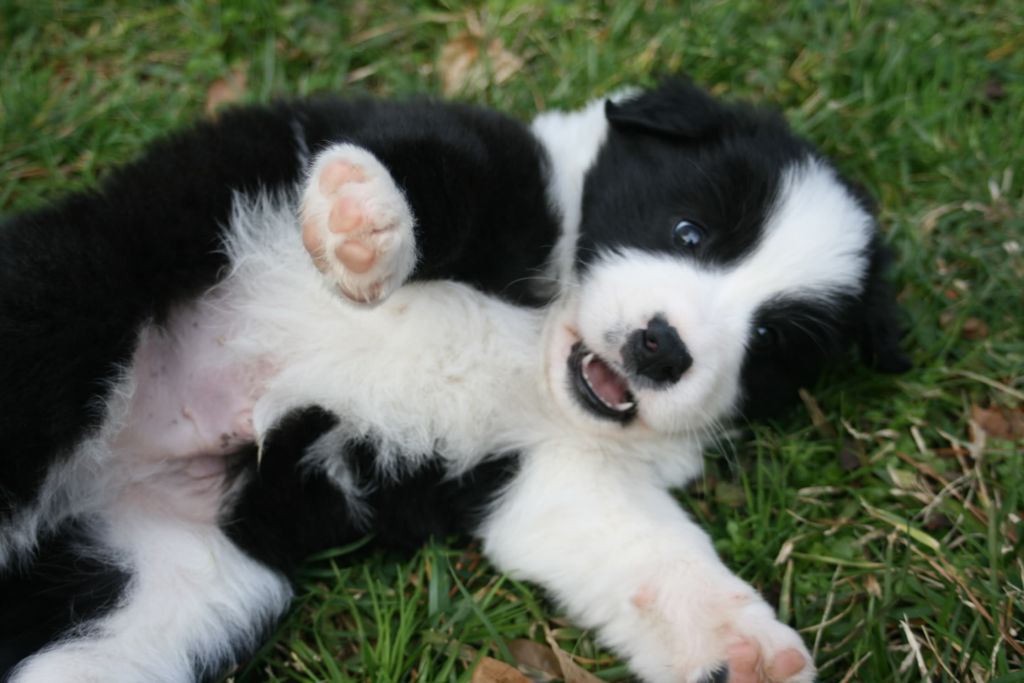When Puppy Mouthing Becomes an Extreme Sport: Causes and Solutions
All puppies use their mouths to explore the world. It’s a regular part of their development. But what happens when a puppy’s biting becomes excessive, chompy, or concerning? As a puppy owner or foster, understanding the difference between typical mouthing and problematic biting can be crucial for your safety, sanity and your puppy’s future.
Normal Mouthing vs. Concerning Biting
While all puppies nip and bite during play and exploration, certain behaviors should raise red flags.
- Biting that seems disproportionately hard or aggressive rather than playful
- Biting specifically triggered by usual handling (all puppies may mouth to say “enough”)
- A puppy that bullies or injures littermates
- Early-onset growling (as young as 3 weeks in some cases)
- Biting that continues intensely past 4–6 months of age
- Biting that doesn’t improve with standard training techniques
Extreme mouthing is communication. Your job is to determine what your puppy is trying to tell you and address those underlying needs with compassion and appropriate intervention. If this is your first puppy, or the first in a long time, you may not know what is excessive! If you struggle with a puppy who bites HARD, get in touch. We can help you get through this challenging developmental phase.
Always Rule Out Pain or Discomfort First
Schedule a thorough veterinary examination, including potential consultation with specialists. Before assuming behavioral issues, a comprehensive veterinary examination is essential. Sometimes, the solution can be as simple as changing food or treating an underlying condition. You might consider bodywork specialists like veterinary osteopaths who can identify and treat subtle physical issues.
Some potential medical causes include:
- Skeletal or muscular pain: Joint issues or injuries that make handling uncomfortable
- Internal discomfort: GI problems or organ pain that manifests when the puppy is held
- Neurological issues: Nervous system abnormalities that affect sensory processing
- Food sensitivities: GI discomfort that improves when dietary issues are addressed
Understanding the Context
- Feral or under-socialized puppies: Puppies with limited early human contact may express fear through biting. These behaviors are defense mechanisms and require specialized handling approaches.
- Resource competition: Puppies competing for limited resources (food, water, comfortable sleeping spots) can trigger defensive biting. Ensuring individual access to resources can sometimes resolve the issue.
- Overstimulation or inadequate rest: Overtired puppies often become “grumpy” and mouthy. Remember that your puppy is a baby and needs plenty of sleep.
Management Strategies That Work
1. Structure
Implement a structured routine with predictable feeding, play, training, and rest periods. Ensure your puppy gets plenty of sleep and multiple short training sessions throughout the day.
2. Meet Basic Physiological Needs
- Frequent feeding: Offer meals 3–4 times daily (or more) based on your vet’s guidance.
- Adequate sleep: Some puppies need more rest than others.
- Individual feeding: Separate food bowls to prevent resource guarding and ensure your puppy feels safe.
3. For Touch-Sensitive Puppies
- T-touch: Use gentle circular movements to desensitize sensitive areas.
- Gentle massage: Ear rubs and neck massages can help calm a touch-sensitive puppy.
- Consent testing: Let your puppy choose when to be handled instead of picking them up without warning.
4. Adult Dog Mentorship
Introduce an appropriate adult dog if possible. A well-mannered adult can teach bite inhibition, model social behavior, and offer structure humans cannot replicate.
- Provides feedback on bite inhibition
- Models proper social behavior
- Offers natural boundaries and structure
When to Consider Developmental Issues
In rare instances, mouthy behavior can signify deeper developmental or neurological challenges. If your puppy displays persistent aggressive behaviors—intense growling, snapping, severe biting, body stiffening, or frequent cowering—seek professional help immediately. These are not typical puppy behaviors and will not resolve on their own.
Professional behavior consultants and veterinarians can identify root causes, which may include neurological differences, fear responses, or medical conditions. A combined approach—veterinary assessment, behavioral evaluation, and targeted training—can make a significant difference. Early intervention is key to helping your puppy develop into a well-adjusted, loving companion.
Many challenging behaviors can be successfully addressed with patience, professional guidance, and a commitment to understanding your puppy’s unique needs. Your dedication can transform concerning behaviors into an opportunity for deeper bonding with your new puppy, shark mouth and all!
Ready to Train Smarter (Not Harder)?
Dog training with Good Human Dog Training gives you more than just a polite pup; it gives you peace of mind. Whether you’re wrangling a wild puppy, managing reactivity, or just tired of being dragged down the block, we’ve got a plan for you.
Let’s make training click for both of you.
Schedule Services



